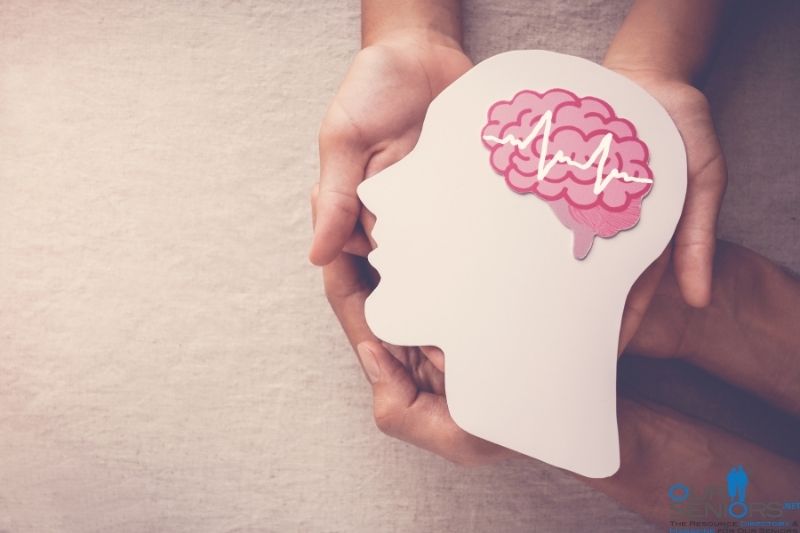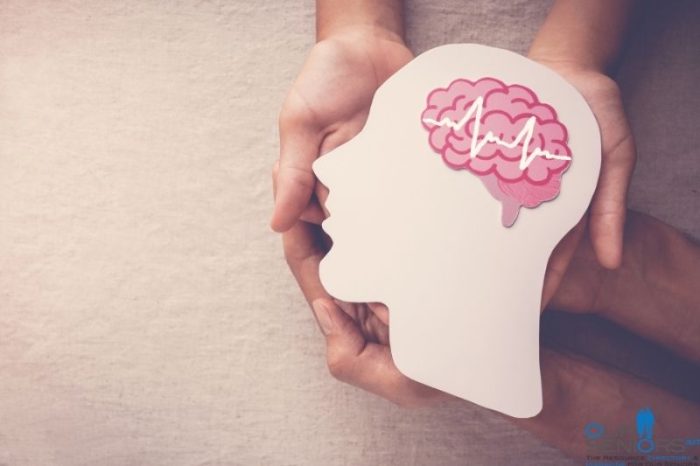
Few things worry seniors more than the thought of “cognitive decline”—losing the ability to do mental tasks like remembering names or doing simple arithmetic. When a young person forgets where they put their keys or neglects to lock a door, we tend to think that they simply have too much on their mind. But for many seniors, each misplaced key, forgotten lock or hard-to-recall word brings with it the thought, “I am losing it!”
We are not referring to disease conditions like Alzheimer’s or other dementias, but to the normal decline in brain function that comes with age. Like your heart, kidneys and lungs, the brain is a physical organ that changes with age. An 80-year-old senior cannot expect their heart or lungs to perform as well as those of a teenager. Likewise, the brain undergoes changes as we age; in fact, elusive changes may start as early as the 20’s. Neurotransmission, the speed at which signals travel within the brain, may begin to slow at this early age, but this slowdown is so small that it is not noticed. Over time, these small losses mount up and many seniors will begin to experience some forgetfulness in their 60’s and 70’s. This is a normal part of aging, not a sign that you are losing your mind or that you have a medical condition like dementia.
The area of the brain responsible for word processing and problem-solving is called the frontal cortex. While it does shrink with age, it has also been shown to have increased electrical activity. In effect, the amount of brainpower available is reduced, but it works harder. There is also evidence that seniors can create new neural pathways to replace older ones that have stopped functioning.
Several measures are known to help protect existing brain function. If you use tobacco or excessive amounts of alcohol, stopping this use can avoid unnecessary loss of memory and mental capacity. The nicotine in tobacco has a negative effect on the nervous system and on the tiny blood vessels that supply all parts of your body, including the brain cells. Studies have shown that middle-aged smokers are more likely to suffer cognitive decline than are non-smokers, so stopping smoking is an important step in maintaining brain health.
Effective treatment for conditions like diabetes, obesity, and high blood pressure may also reduce the risk of age-related cognitive decline. All of these are conditions that can impair the circulatory system. The adult human brain weighs about three pounds, two percent of the total body weight; it uses about 20% of the total energy required each day. It is important that the brain receives a constant supply of oxygen and nutrients, and this demands good vascular health.
You have probably seen commercials for products like ginkgo biloba, a plant extract, or Pravagen, derived from jellyfish. A 2019 article in the Journal of the American Medical Association discusses the lack of science behind the $3.2 billion industry promoting unproven supplements for improved cognition and brain health. The market is crowded with these and similar products. Be aware that no medical evidence exists to support this claim.
However, there is good news about one measure you can take to minimize age-related memory loss – exercise! Numerous studies have found that people who do regular physical exercise have a reduced risk of developing age-related memory and mental function loss. This should not be surprising—physical exercise improves circulation throughout the body, including in the brain. Since the brain requires 15 to 20% of total circulation, far more than its three-pound weight would indicate, it stands to benefit greatly from maintaining healthy circulation.
In a British Medical Journal article, researchers compared exercise programs to non-exercise alternatives for maintaining memory. The results were gathered from 39 studies of people over 50 and measured the effects of exercise on cognition, attention, memory and executive function (skills that enable task completion.) The study looked at 12,820 patient records and found that physical exercise improved cognitive function in people over 50 regardless of their beginning status.
These results are important because they demonstrate that measures can be taken to slow or even reverse memory loss and declining mental ability. Everyone’s brain is different, and results may vary, however, research has shown that the brain is capable of regrowth, and that an older brain can learn new things. So, be of good cheer and REMEMBER to exercise!
Here are links to some sites that provide trusted, authoritative information about brain health and aging:

